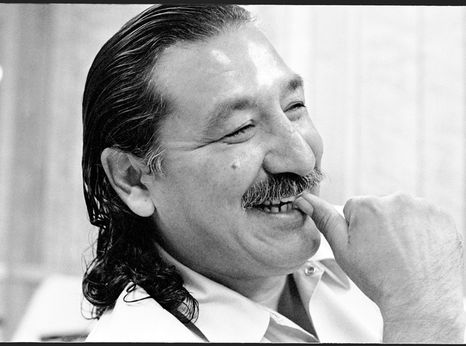Native American activist at risk of Covid-19

On 26 June 1975, during a confrontation involving American Indian Movement members on the Pine Ridge Indian reservation in South Dakota, Federal Bureau of Investigation (FBI) agents Ronald Williams and Jack Coler were shot dead. In 1977, Leonard Peltier was convicted of their murders and sentenced to two consecutive life sentences. Leonard Peltier does not deny that he was present during the incident, however, he has always denied killing the agents as was alleged by the prosecution at his trial.
Myrtle Poor Bear, a Lakota Native woman who lived at Pine Ridge, was a key alleged eyewitness to the shootings. Leonard Peltier was extradited from Canada, where he had fled following the shootings, on the basis of her statement that she had seen Leonard Peltier kill Ronald Williams and Jack Coler. However, Myrtle Poor Bear later retracted her testimony. Although not called as a prosecution witness at trial, the trial judge refused to allow Leonard Peltier’s attorneys to call Myrtle Poor Bear as a defense witness on the grounds that her testimony “could be highly prejudicial to the government”. In 2000, Myrtle Poor Bear issued a public statement to say that her original testimony was a result of months of threats and harassment from FBI agents.
In 1980, documents containing evidence which might have assisted Leonard Peltier’s case, but which had been withheld by the prosecution at trial, were released to Leonard Peltier’s lawyers as a result of a lawsuit under the Freedom of Information Act. However, in 1986, the U.S. Court of Appeal for the Eighth Circuit denied Leonard Peltier a retrial stating that: “We recognize that there is some evidence in this record of improper conduct on the part of some FBI agents, but we are reluctant to impute even further improprieties to them”.
The U.S. Parole Commission has held a number of parole hearings on Leonard Peltier’s case. However, it has denied parole on the grounds that Leonard Peltier did not accept criminal responsibility for the murders of the two FBI agents. This is despite the fact that, after one such hearing, the Commission acknowledged that, “the prosecution has conceded the lack of any direct evidence that you personally participated in the executions of two FBI agents”. Furthermore, James H. Reynolds, former US Attorney and the supervisor of the attorneys who prosecuted Leonard Peltier and handled his appeal, has publicly called for clemency and the release of Leonard Peltier.
Leonard Peltier suffers from a number of underlying health issues that place him at particular risk of becoming infected with COVID-19. Close living conditions and an inability to effectively quarantine or avoid potentially infected people, coupled with populations and people with pre-existing conditions identified by the World Health Organization as more susceptible to the virus, make incarcerated people particularly vulnerable to a contagious pathogen like Coronavirus. Exacerbating the problem, prisons and jails generally are notoriously deficient in providing access to health care for incarcerated populations.
Due to the numerous issues at trial and the exhaustion of all of his legal avenues for appeal, Amnesty International supports ongoing calls for clemency for 77-year-old Leonard Peltier.
To send an email, please fill in this form.
- Downloads
- Download full UA in PDF